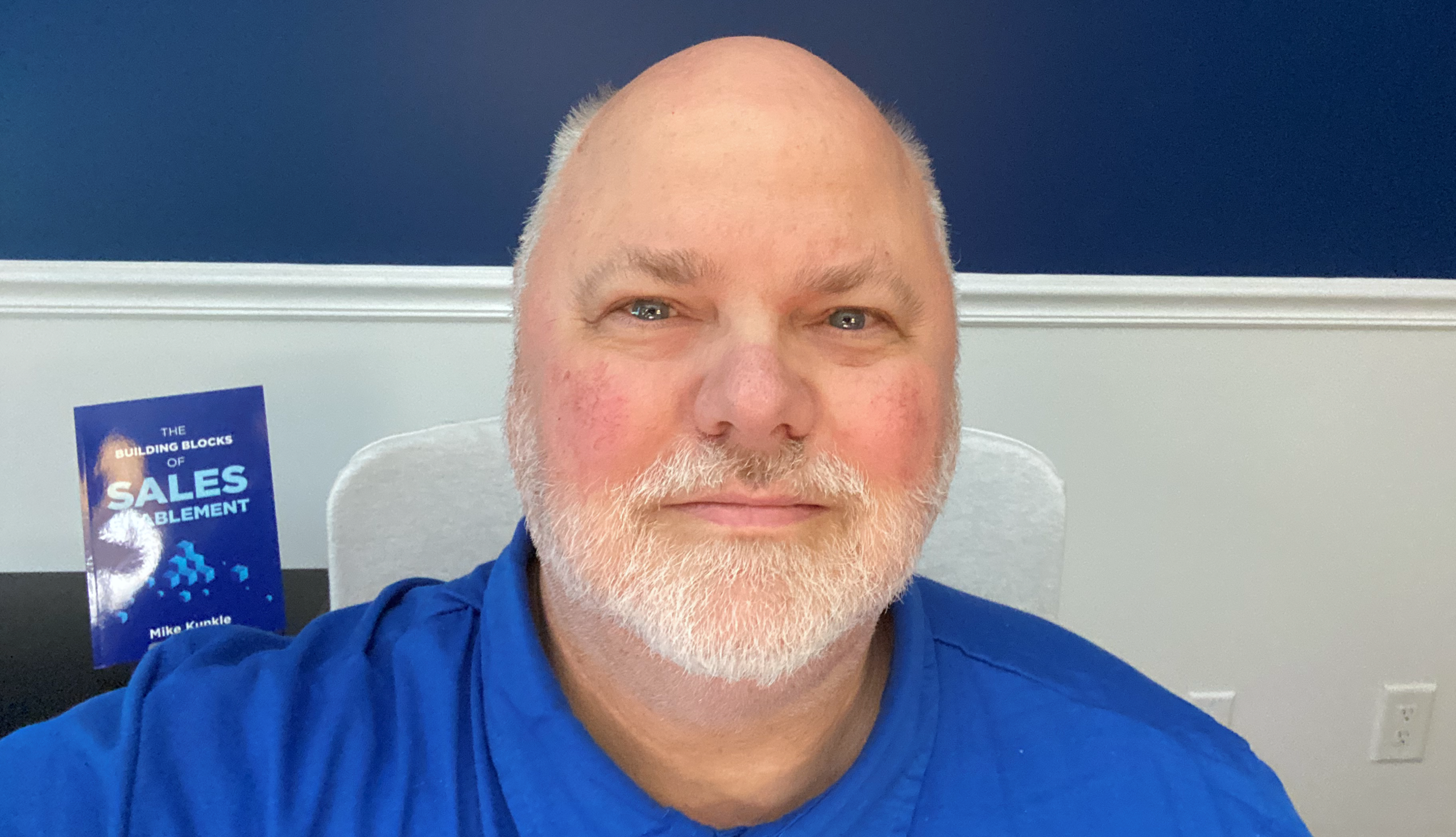Dr Jeremy Noad: “Sales teams should limit technology shifts to maintain efficiency”

A post-event interview with the Global Director of Growth Productivity at Linde
Earlier this year, we held our Future of Sales Conference, bringing together hundreds of like-minded sales professionals from world-renowned brands. Following this event, we reached out to the Global Director of Growth Productivity at Linde, Dr Jeremy Noad, who discussed enhancing sales productivity in the tech-enabled era. In the interview below, Dr Jeremy shared the biggest takeaways from his fireside chat at the event and what he views as the key trends shaping the industry in 2024.
HI DR JEREMY, PLEASE INTRODUCE YOURSELF AND YOUR ROLE.
With over 30 years of experience in sales and marketing, my journey has been deeply intertwined with the digital evolution, focusing on boosting sales productivity. My career has taken me across more than 50 countries, where I've played a crucial role in driving revenue growth, increasing profits, and enhancing the productivity and effectiveness of sales organisations.
My current role is Global Director of Growth Productivity, which encompasses all aspects of sales enablement and other topics. My academic pursuits have been just as fulfilling. I earned my doctorate from the University of Portsmouth, focusing my research on benchmarking sales performance. For eight years, I served as a research editor for the International Journal of Sales Transformation, a platform that allowed me to explore further and contribute to the field of sales excellence.
In 2020, I co-authored "Selling Professionally, A Guide to Becoming a World-class Sales Executive" with Dr. Beth Rogers. The book marks a significant milestone in my career, capturing the essence of my sales philosophy and strategies. It resonated well with readers, maintaining a spot on the business book bestseller list for over 18 months.
WHAT WERE THE MAIN REASONS FOR SHARING YOUR STORY AT OUR CONFERENCE?
I believe in technology's transformative power and process optimisation to elevate sales productivity. In an era where the business landscape evolves at a dizzying speed, sales teams face a myriad of challenges that require innovative solutions. The heart of my talk was boosting sales productivity not just through sheer effort or hitting targets but by making those targets easier to achieve through smart integration of technology and process refinement.
This focus on efficiency and effectiveness is crucial. I’ve seen firsthand how the friction of task switching and technology juggling can derail sales performance. I aimed to spotlight these common pitfalls and chart a course towards a solution—leveraging technology to streamline sales activities, allowing professionals to concentrate on their core strength: selling. The journey from traditional client engagement methods to leveraging advanced CRM and data analytics tools represents a significant leap. Sharing this evolution was essential to illustrate how adopting a data-driven approach could remarkably enhance sales outcomes.
The road to integrating new technologies can be fraught with scepticism and resistance. It’s not about chasing the latest tech but integrating tools to bolster the sales process. Start simple. Reevaluate one process, one tool at a time. Remember, the goal is not just to sell more but to sell smarter.
WHAT ARE THE BIGGEST TAKEAWAYS OUR COMMUNITY CAN LEARN FROM YOUR STORY?
The key lesson from my experience is the profound effect of integrating technology and optimising processes on sales productivity. Effective use of technology and streamlined processes significantly boost sales team efficiency. A major insight is the negative impact of frequent technology changes, which can slow down productivity by causing cognitive delays. It's essential for sales teams to limit technology shifts to maintain focus and efficiency, thereby spending more time on sales rather than administrative tasks.
Reducing task switching in sales processes is also crucial, as it slows operations and hinders client interactions. Strategies that streamline task management and minimise switching can improve sales efforts and outcomes. Moreover, aligning new technologies with existing workflows is vital for successful integration, emphasising enhancements without disrupting current processes.
LOOKING TO THE FUTURE, WHAT WOULD YOU SAY ARE THE KEY TRENDS SHAPING THE INDUSTRY?
The landscape of sales and technology is rapidly evolving, influenced by several major trends. Understanding and adapting to these developments is essential for companies seeking to stay competitive and foster growth.
AI and ML Integration: AI and machine learning are transforming sales through predictive analytics, optimised lead scoring, personalised interactions, and streamlined processes. This boosts efficiency and focuses on high-value tasks, enhancing productivity.
Automation: The rise of automation in routine tasks allows sales professionals to focus on strategic elements like relationship building. Sophisticated tools now handle tasks from scheduling to communications, easing the sales teams' cognitive load.
Customer Experience Focus: The importance of customer experience in driving sales and loyalty is increasingly recognised. Investments in tools and processes for better customer interactions are growing, emphasising personalised and engaging experiences through advanced CRM and engagement platforms.
Data-Driven Decisions: Strategic use of data analytics is crucial. Companies leverage real-time data for informed decision-making, trend forecasting, and growth opportunities, highlighting the need for effective data visualisation and analysis tools.
Hybrid Sales Models: Remote and hybrid work models are reshaping sales strategies. A mix of digital and in-person interactions requires tools and processes that support a hybrid approach, balancing digital engagement with the advantages of face-to-face interactions.
Sustainability and Ethics: Consumer awareness of environmental and ethical issues influences sales strategies. Trends towards transparency, sustainability, and social responsibility are becoming central to sales approaches.
These trends underscore the dynamic nature of the industry and the need for agility. Embracing these changes can enhance sales productivity and lead to more resilient business models.
ARE THERE ANY PROJECTS YOU ARE CURRENTLY WORKING ON THAT YOU ARE EXCITED ABOUT?
We are at the forefront of revolutionising sales productivity and customer engagement by creating a cutting-edge, AI-driven platform. Imagine a sales team equipped with insights drawn from a comprehensive analysis of CRM data, social media interactions, and transaction histories, all in real-time.
Our platform doesn't just analyse data; it transforms it into actionable insights, enabling sales professionals to prioritise their efforts effectively and personalise their customer interactions with unprecedented accuracy. This is more than a tool; it's a game-changer for sales strategies, promising to boost sales productivity and forge stronger, more loyal customer relationships. The future of sales lies in the strategic integration of AI and big data analytics. Moving beyond reactive sales tactics to a more proactive, data-driven approach can significantly enhance sales productivity while simultaneously elevating the customer experience. The excitement surrounding this project stems from its potential to drive immediate sales results and their capacity to fundamentally transform how sales strategies are developed and executed in the digital age.


